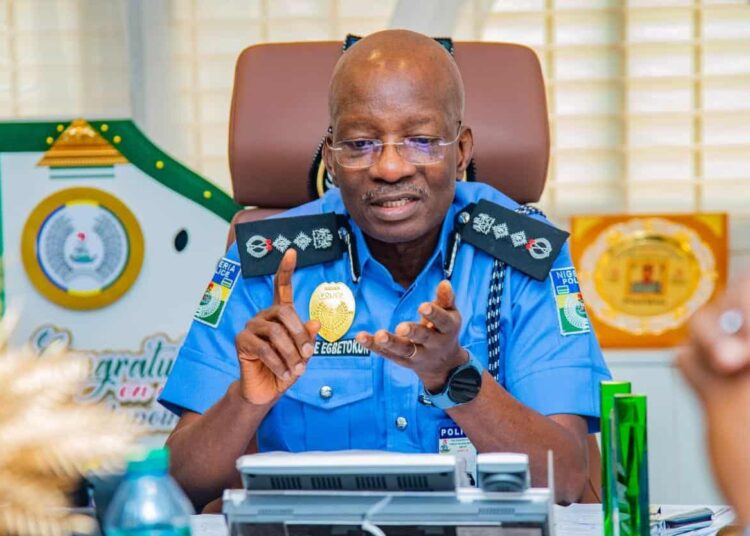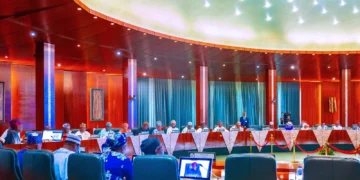When the Inspector-General of Police (IGP), Kayode Egbetokun, announced the nationwide enforcement of Third-Party Insurance Policy starting February 1, I didn’t need a crystal ball to predict what would follow. Like clockwork, reports of police harassment and extortion began flooding in, including a particularly disturbing video of officers assaulting a pregnant woman in Akwa Ibom State.
To borrow from Nigerian street wisdom, the IGP has effectively “opened shop” for his men. In a country where police checkpoints have become unofficial toll gates, adding another “verification requirement” is tantamount to creating fresh opportunities for extortion.
Let’s be clear about what’s really happening here. While the policy itself isn’t new, its sudden, aggressive enforcement raises eyebrows. The timing is curious, and the beneficiaries are obvious – insurance companies seeking to boost their revenue streams. But at what cost to the average Nigerian motorist?
Consider this: in a nation grappling with unprecedented security challenges, where criminal elements operate with frightening impunity, our police force’s priority has somehow become checking insurance papers.
In Abuja, the nation’s capital, “one chance” robbers terrorise commuters, and breaking down under a bridge at night is practically a death sentence. Yet, here we are, watching police officers harass motorists over insurance documents.
The history of such enforcement drives in Nigeria tells a consistent story. Remember the tinted glass permit saga? Or the endless cycles of vehicle registration enforcement? Each time, these exercises start with grand announcements about public safety and compliance with regulations. Each time, they devolve into extortion schemes that burden ordinary citizens while enriching corrupt officers.
Don’t get me wrong – vehicle insurance is important. It provides crucial protection for road users and helps manage the financial fallout of accidents. But the issue here isn’t the policy itself; it’s the manner of enforcement and the track record of those tasked with the responsibility.
The Nigeria Police Force has consistently demonstrated an inability to implement such policies without turning them into opportunities for corruption. When you have a force where the average officer sees their uniform as a license to extort, adding another checkpoint requirement is like giving matches to a pyromaniac.
For commercial drivers and transport workers, this new enforcement drive is particularly devastating. Already struggling with skyrocketing fuel costs and multiple levies, they now face another layer of financial exploitation. The irony is that many of these drivers already have valid insurance policies – but that rarely matters when an officer decides to create problems where none exist.
The assault on the pregnant woman in Akwa Ibom isn’t an isolated incident – it’s a symptom of a deeper malaise within our police force. The ease with which officers resort to violence, their contempt for citizens’ rights, and their predatory approach to law enforcement are well-documented issues that no amount of reform rhetoric has addressed.
Let’s talk about misplaced priorities. While officers are busy checking insurance papers, kidnappers are collecting ransoms in millions, bandits are controlling territories in the northwest, and cyber criminals are having a field day. In Lagos, traffic robberies have become so common that certain routes are no-go areas after dark. In the southeast, unknown gunmen operate with impunity. These are the security challenges that should command police attention.
But here’s what the police leadership seems to have forgotten: every officer deployed to check insurance papers is one less officer available for actual crime prevention and investigation. Every hour spent harassing motorists is an hour not spent protecting the citizens from real threats.
The insurance industry’s role in this cannot be ignored. While there’s nothing wrong with ensuring compliance with insurance regulations, the aggressive push for enforcement through the police force raises questions. Why not explore more civilised methods of ensuring compliance? Why not leverage technology and digital verification systems rather than creating more opportunities for police-citizen confrontations?
The IGP’s directive appears to be another example of choosing the easy over the essential. It’s far simpler to harass law-abiding citizens over documentation than to tackle the real security challenges facing the nation. After all, checking papers at checkpoints is less risky than confronting armed criminals or investigating complex crimes.
The timing of this enforcement drive also speaks volumes about the disconnect between policy makers and economic realities. In a period when Nigerians are grappling with historic levels of inflation, high fuel prices and high cost of living crisis that has pushed millions into poverty, adding another layer of financial burden through fines and extortion seems particularly tone-deaf.
What’s needed isn’t more checkpoints or document verification exercises, but a fundamental rethink of our approach to law enforcement. We need a police force focused on protecting the council citizens, not preying on them. We need officers trained to serve, not to harass.
We need leadership that prioritises real security challenges over revenue generation schemes.
Here’s a radical suggestion: let insurance companies handle insurance enforcement through proper channels. Create a digital verification system that can be checked without police intervention. Implement a points system for traffic violations that doesn’t involve on-the-spot payments. Most importantly, let the police focus on what they’re supposed to do – preventing and investigating crime, maintaining public order, and protecting the citizens.
Until then, this new enforcement drive will remain what it appears to be – another opportunity for police extortion, another burden on the already overwhelmed Nigerian citizen, and another reminder of how far we have to go in reforming our law enforcement agencies. And the irony is that it’s the poor masses that will be exploited. The police won’t stop convoys of government officials or cars of big men. If they stop cars of big men, its for “anything for the boys” or happy weekend “.
For now, motorists across the country will have to brace themselves for more harassment, more extortion, and more abuse of power. As for the IGP’s warning about strict enforcement actions? History suggests it will be strictly enforced only when it comes to extracting money from the citizens, not in protecting their rights or ensuring police professionalism.
Welcome to another chapter in the ongoing saga of Nigerian law enforcement – where policies meant to protect citizens invariably become tools to exploit them. The more things change, the more they stay the same.











